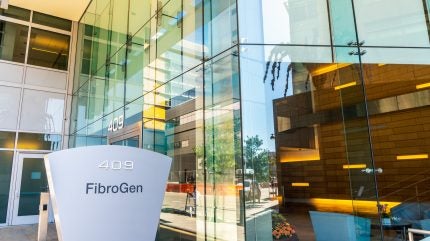
AstraZeneca has agreed to acquire FibroGen’s China subsidiary for approximately $160m, securing full control over the anaemia drug roxadustat in the country.
The deal strengthens AstraZeneca’s presence in China, a key growth market for the company, and is expected to close by mid-2025, subject to regulatory approvals. Following the announcement of the acquisition, FibroGen’s stock price surged 42% when the market opened on 20 February. The company expects to use proceeds from the sale to repay its term loan to Morgan Stanley Tactical Value and to extend its cash runway into 2027.

Discover B2B Marketing That Performs
Combine business intelligence and editorial excellence to reach engaged professionals across 36 leading media platforms.
AstraZeneca and FibroGen have been partnered on roxadustat since 2013, which is marketed in China under the brand name Evrenzo. The drug was approved by Chinese regulators in 2018 for anaemia caused by chronic kidney disease and generated $284m in sales in China in 2023, reflecting a 36% year-over-year growth.
This deal comes a year after AstraZeneca exited most of its US collaborations with FibroGen. Despite that exit, the companies maintained partnerships in China and South Korea, where roxadustat leads the chronic kidney disease-related anaemia market.
In the US, roxadustat has struggled to gain approval. The US Food and Drug Administration (FDA) rejected the drug in August 2021, citing the need for additional studies. AstraZeneca and FibroGen continued working together on the Phase III MATTERHORN study (NCT04592913), but the drug failed to demonstrate efficacy in anaemia patients with myelodysplastic syndromes in the study in May 2023, further hindering its path to market in the US.
FibroGen will retain US rights over roxadustat and said it plans to meet with the FDA in Q2 2025 to figure out the drug’s “next steps” in the US. Astellas licences roxadustat in some markets, including Japan.

US Tariffs are shifting - will you react or anticipate?
Don’t let policy changes catch you off guard. Stay proactive with real-time data and expert analysis.
By GlobalDataFibroGen CEO Thane Wettig stated the transaction will support the company’s financial position and allow it to focus on the development of FG-3246, a CD46-targeting antibody-drug conjugate, and FG-3180, a companion PET imaging agent for metastatic castration-resistant prostate cancer.
The company has recently faced setbacks with its oncology pipeline. In July 2024, two Phase III trials for its lead oncology candidate, pamrevlumab, failed to meet their primary endpoints. Following these failures, the company announced plans to halt pamrevlumab’s development and reduce its US workforce by 75%, leading to a sharp decline in its share price.
AstraZeneca’s latest acquisition aligns with its broader expansion strategy in China. The company has been actively pursuing deals in the region, including a 2023 partnership with Eccogene for obesity treatments and a $1.2bn agreement to acquire Gracell Biotechnologies to strengthen its chimeric antigen receptor (CAR)-T cell therapy portfolio.
The deal also comes at a time when AstraZeneca is facing legal challenges in China. The company confirmed that its Chinese operations are under investigation for alleged unpaid import taxes on certain cancer drugs, including Imfinzi (durvalumab) and Imjudo (tremelimumab). AstraZeneca CEO Pascal Soriot told investors in the company’s Q4 2024 earnings call that the import duties in question amount to $900,000 and that the company could face a fine of up to five times that amount. He also noted that a similar issue related to Enhertu (trastuzumab deruxtecan) could increase the potential fine. AstraZeneca has stated that it is fully cooperating with Chinese authorities. In October 2024, Leon Wang, president of AstraZeneca’s China operations, stepped down and was detained along with other current and former employees amid the allegations.




